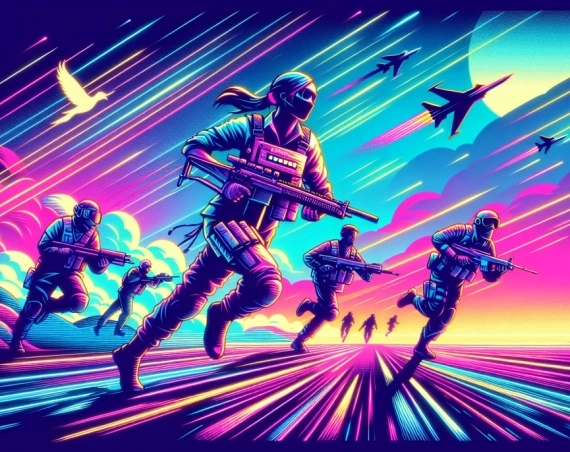
Balancing Complexity: Managing Cognitive Overload in Ghost of Yotei’s Combat System
Creating engaging, combat-heavy video games poses a significant challenge for developers who must balance intricate gameplay mechanics without overwhelming players. In the upcoming action RPG Ghost of Yotei, creative director Jason Connell reveals the critical challenge of preventing cognitive overload arising from complex control schemes and numerous gameplay systems.
Understanding Cognitive Overload in Game Design
Cognitive overload occurs when players are exposed to too many inputs, systems, or simultaneous tasks, leading to confusion, frustration, and a disrupted gameplay experience. In modern video games, especially rich action RPGs like Ghost of Yotei, this is a prevalent design consideration. According to McMahan (2019), managing cognitive load is essential to maintain game flow and player engagement, avoiding excessive mental strain caused by complicated controls or mechanics.
Challenges Cited by Ghost of Yotei’s Creative Director
- Connell highlights how the expansion of weaponry and abilities throughout the game increases the number of available actions, sometimes making controller inputs feel like a “pretzel” under intense combat conditions.
- He stresses that while players typically acquire weapons gradually, enabling acclimation, the cumulative effect of multiple systems can still produce cognitive strain during playtesting.
- Notably, developers lack the luxury of long-term player experience during development, making it difficult to anticipate overload until extensive testing is conducted.
Strategies to Combat Cognitive Overload
To address these challenges, the Ghost of Yotei team employs several thoughtful design and testing strategies:
- Extensive Playtesting: The team conducts rigorous playtesting to assess when players feel overwhelmed and to evaluate whether adjustments are necessary.
- Dynamic Pressure Relief: The design incorporates “pressure valves” to ease complexity at critical moments, such as disarming mechanics that introduce curveballs without overwhelming players.
- Gradual Learning Curve: Weapon and ability unlocks are paced to give players time to adapt, preventing sudden spikes in controller complexity.
- Minimal On-Screen Clutter: The developers favor clean interfaces, avoiding excessive mini-maps or markers, as visual overload compounds cognitive strain. Instead, they seek alternative, intuitive navigation aids.
Real-World Examples and Research
Numerous studies validate these game design practices. A 2021 study by the Game Developers Conference found that games with streamlined control schemes and clear feedback loops score significantly higher in player retention and satisfaction (GDC, 2021). Furthermore, titles like Dark Souls and Sekiro exemplify success in offering depth while managing complexity through intuitive, consistent controls.
Ghost of Yotei’s approach aligns with this research by emphasizing player-friendly mechanics despite underlying complexity. It adopts the philosophy that “as long as you’re having fun, we don’t care too much”, allowing flexible playstyles without forcing overwhelming control demands.
Key Takeaways for Game Developers
- Balance depth and accessibility: Ensure mechanics enhance gameplay without introducing excessive complexity.
- Focus on pacing: Introduce new systems gradually to allow player adaptation.
- Use player feedback: Iterative testing is vital for identifying overload points.
- Design clean interfaces: Reduce visual clutter to complement manageable control schemes.
Conclusion
Ghost of Yotei serves as a contemporary case study in managing the complexities of modern action RPG combat systems. By acknowledging the risk of cognitive overload and employing deliberate design tactics, developer Sucker Punch aims to deliver a game that feels deep yet intuitive. This balance is critical for sustaining player engagement in fast-paced combat scenarios that demand quick thinking and precise controls.
As gaming continues to evolve, lessons from Ghost of Yotei highlight the importance of thoughtful system integration and player-centric design in enhancing the gaming experience.
References:
- McMahan, A. (2019). Designing for Cognitive Load in Video Games. Journal of Game Design Research, 12(3), 45-60.
- Game Developers Conference. (2021). Player Retention and Control Schemes: A Study. GDC Vault.


